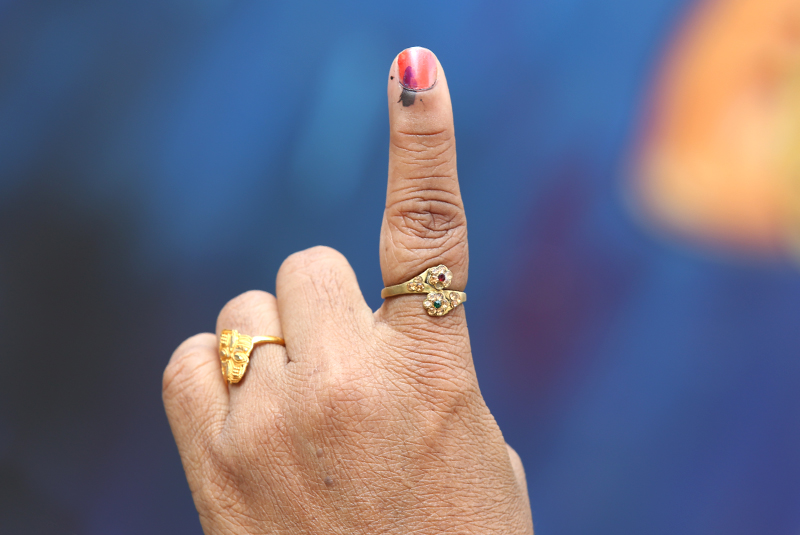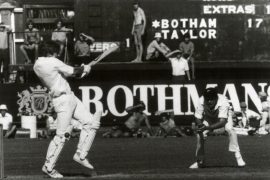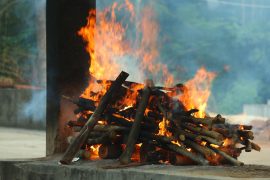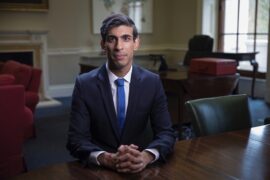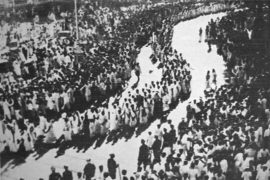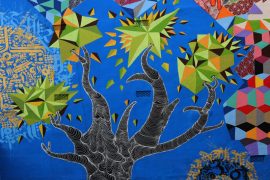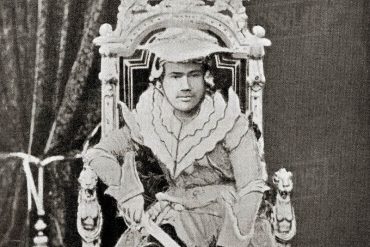In keeping with the Modi regime’s penchant for minting catchy slogans and high-sounding phrases to exaggerate, camouflage or entice, its latest project for institutionalising simultaneous elections to the Lok Sabha and State Legislative Assemblies is dressed up in grandiose, nationalistic clothing. It is as though separate elections are divisive and less patriotic. Remember Ache Din, Amrit Kaal, Vishwa Guru, Abki Baar 400 Par and Modi Ki Guarantee?
The report of the High-Level Committee constituted to prepare a road map for holding simultaneous elections has been accepted by the Union Cabinet. The Committee has recommended that, as the first step, simultaneous elections to the Lok Sabha and the State Legislative Assemblies be held. As the next step, elections to Municipalities and Panchayats would be held within one hundred days of the holding of the elections to the Lok Sabha and the State Legislative Assemblies. For this purpose, an Appointed Date will be notified by the President of India on the date of the first meeting of the House of the People after a general election, and the tenure of all State Legislative Assemblies constituted after that date shall be only up to the subsequent General Elections to the House of the People. All subsequent General Elections to the House of the People and all State Legislative Assemblies shall be held together simultaneously.
In the event of fresh elections due to a hung House, no-confidence motion etc., the tenure of the new House of the People or the State Legislative Assemblies will only be for the unexpired period of the five-year term of the previous House of the People.
The Committee does not spell out what happens to the State Legislative Assemblies that are still to complete their tenure on the Appointed Date for the first simultaneous election. Those assemblies will necessarily have to be dissolved to facilitate simultaneous elections. The report has listed 30 State Assemblies, the tenures of which are expiring between 2024 and 2029. Some of them will have truncated tenures depending on the date appointed for the first simultaneous general election.
In the event of extraordinary circumstances, when the simultaneous elections to any State Legislative Assembly cannot be conducted at the time of the General Elections, the Election Commission of India may recommend to the President that the election to that Legislative Assembly may be conducted at a later date. However, the term of the Legislative Assembly, so constituted, shall end on the same date as the end of the full term of the Lok Sabha constituted after the General Elections. No time limit has been prescribed for conducting such postponed elections, and the provision can be misused to the detriment of the interests of the State and federal democracy.
There will be a single electoral roll for elections to the House of the People, State Legislative Assemblies, Municipalities and Panchayats. This is a welcome step and possibly the only positive element in an otherwise retrograde move.
How such a project that has far-reaching consequences and fundamentally alters the democratic process has been rushed through without thorough discussion by Parliament and wide public consultation about the pros and cons is typical of the BJP government’s authoritarian style. The Committee’s task was merely to recommend measures to implement the decision already taken. The recommendations should have been thrown open for scrutiny by Parliament, State Legislatures and the public before Cabinet approval.
As it turns out, far from one nation-one election, it will be at least two general elections, one to the Lok Sabha and State Legislatures and one to the Municipalities and Panchayats within a period of one hundred days, with the possibility of any number of mid-term elections to the Lok Sabha and the State legislatures in between, due to hung house, no-confidence motion, etc.
In the case of mandatory simultaneous elections as proposed, election to the Lok Sabha will overshadow the elections at the lower levels and will have an overriding influence over the outcome of the elections to State assemblies, municipalities and panchayats, thereby relegating local issues and people’s immediate concerns to the background. This would be detrimental to federal principles and decentralised governance and will weaken the role of the States in the polity.
Under the proposed framework, a government formed after a mid-term poll gets a truncated tenure of the remainder of the unfinished term of the previous legislature. This would be a serious handicap for the new government in formulating meaningful policies and programmes and is inherently anti-democratic and against the interest of the citizens. Any hope that the prospect of a reduced term will serve as a deterrent to defections from political parties and no-confidence motions to topple governments would be highly misplaced. There are any number of instances of ministerial berths being rotated among rival contenders from the same ruling party or among coalition partners. A reduced term is unlikely to deter power-hungry politicians.
Behind the grandiose one nation one election slogan lurks the real danger of an all-powerful Union government dominating the polity and the marginalisation of the States, their legislatures as well as regional parties and thereby widening the distance between the citizen and the ruler.
Implementation of the recommendations of the High-Level Committee will require no less than 15 constitutional amendments involving 6 Articles of the Constitution and amendments to three other statutes. With the numbers in both Houses of Parliament, as they stand today, BJP will not be able to carry out the required constitutional amendments without support from non-NDA and opposition parties. But that has not stopped it from making this calculated gamble.
The Committee’s contention that only the constitutional amendments for enabling simultaneous elections to the Municipalities and Panchayats and the preparation of common electoral rolls require ratification by the States is open to question and subject to possible judicial scrutiny. In fact, the entire scheme and the processes suggested by the High-Level Committee impinge on the federal structure and the existing electoral system and are likely to be challenged in the Courts on constitutional and other grounds.
Four out of six National parties, seven State parties and four other political parties have voiced their opposition to the idea of simultaneous elections to the High-Level Committee. Telugu Desam Party, currently an ally of the BJP, has since offered support but wants the benefits to be evaluated. Naveen Patnaik, an erstwhile ally, whose party had indicated its support to the Committee, now says that the party will undertake a detailed study on simultaneous elections before taking a stand on it.
Given the gravity of the proposal, its ramifications and the many uncertainties involved, one would have thought that any government would move cautiously. However, as on many other issues in the past like demonetisation, stripping Jammu and Kashmir of statehood, uniform civil code, amendment of citizenship laws, etc., the BJP has once again demonstrated its bulldozing ways, its propensity for grandstanding, and its aversion to dialogue, consultation and consensus-seeking. In light of the BJP and the Sangh Parivar’s declared agenda and governance model of centralisation and concentration of power, there is widespread apprehension that the “one nation one election” scheme is merely the opening gambit of a carefully crafted game plan to realise the pipe dream of an Opposition-mukt, one-nation one-party one-leader Bharat.
-30-
Copyright©Madras Courier, All Rights Reserved. You may share using our article tools. Please don't cut articles from madrascourier.com and redistribute by email, post to the web, mobile phone or social media.Please send in your feed back and comments to editor@madrascourier.com

